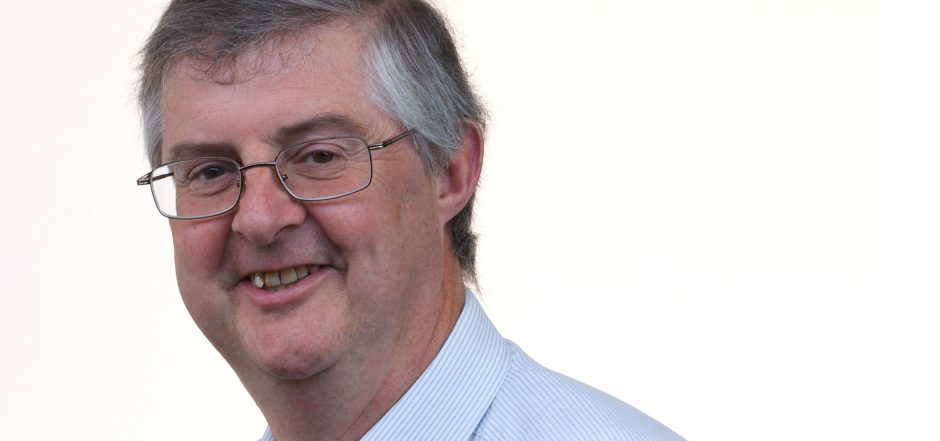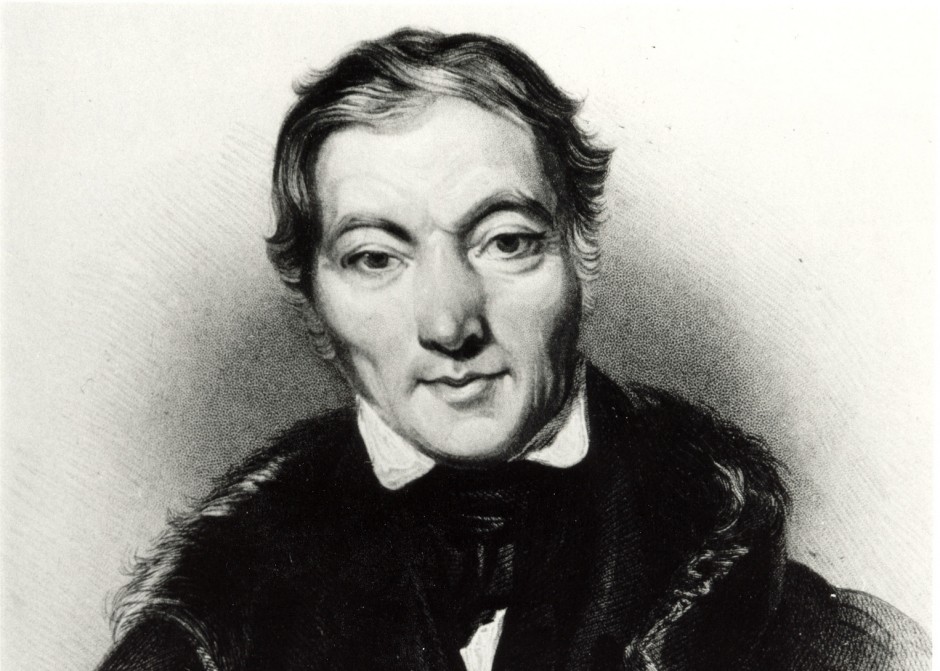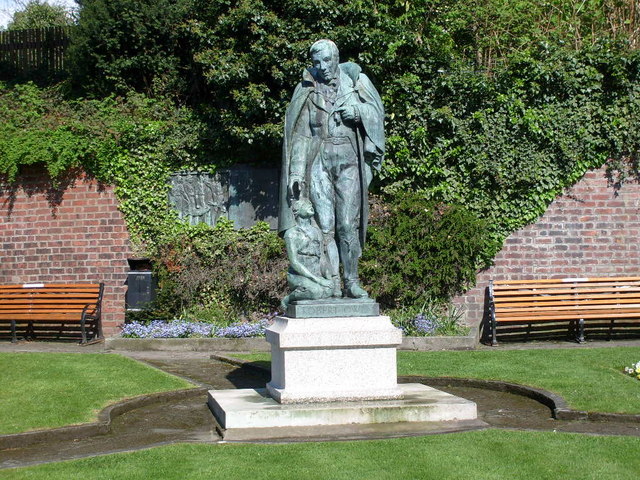Ahead of the 250th anniversary of Robert Owen (14 May 2021), we spoke with Mark Drakeford, first minister of Wales, about the legacy Owen has left in his country of birth. What is his legacy, and what has been his impact on Wales?
How would you describe Robert Owen – the man, the ideas, the legacy – to someone who doesn’t know him at all?
I’d probably say that he was a man of his time, but that he also went beyond his time. He’s not a saint, and we need to be careful not to portray him that way. Some of his views wouldn’t stand up to examination. So he’s of his time, constrained by the way people thought at that time.
But that said, he still had the most amazing capacity to transcend his time and to be a pioneer in many fields. He had incredible restless energy, constantly inventing ideas and new ways of doing things. And very importantly he was one of those relatively rare people who could bridge the world of ideas and the world of practical delivery. Because it wasn’t that he just had ideas, he went out and tried to make them happen and show how they could make a difference in actual people’s actual lives.

Was Robert Owen a radical, a visionary or just a very canny businessman?
I think, genuinely, he was all three. He was certainly radical and took on the big topics. Organised religion played a part in people’s lives when he was alive to an extent that we’d find very hard to imagine today. And to take on and have different views from those orthodoxies, as he did, was not a small thing. His ideas around children, education and the workplace were also radical and visionary. But he was a businessman. He was an entrepreneur. He had interesting ideas, but he also did something about them.
What are your views on Robert Owen’s ideas around education and the importance of learning?
His ideas were much closer to the way we think about things today, than maybe even 50 years ago, let alone 250 years ago. He had very different ideas about discipline; those were times when the physical punishment of children was thought to be good for them rather than as we would think of it today. For him, education was about creating character by emphasising the moral purpose of education. It was about widening young people’s experiences, giving them chances to do things such as dancing, music, and other cultural aspects of the curriculum that would be seen as very unusual indeed.
He had the idea that education was there not just to turn out people with the minimum level of education to do the bidding of the capitalist machine, but to turn out people who had views, values, and possibilities that without education they wouldn’t have ever come across. So I think in that sense he had a very 21st century idea of what education should be about.

What are the most important parts of his legacy?
His legacy in education would certainly be one part. His legacy in social partnership too. In Wales we talk a lot about how our approach to solving problems is a social partnership approach in which we get all people with an interest in solving that problem around the table together – and then we do the hard work, which is to hammer out common ground and find ways in which we can agree on ways forward even when people start from very different positions. You see an awful lot of that in the Robert Owen approach to problem-solving.
But if I had to choose one part, from a Welsh perspective it would be the co-operative ethos. We’re very lucky in Wales. Our long tradition, unbroken since the start of universal suffrage, is that people here warm much more to the idea that we all do better when we work together rather than when we compete with one another. And that collaboration and co-operation brings a great number of benefits – and particularly delivers the greatest benefits to those who otherwise would struggle to get those things for themselves.
The Welsh social care system, for example, has gone from a public service monopoly to practically a private sector monopoly over the last 30-40 years. We want to rebalance that market and have a different range of providers. We’re very keen to promote and to incluce some co-operative businesses into that space. It is a natural way for us to think about it. And that is his legacy.
How is Robert Owen’s legacy built into policy in Wales?
An obvious example is the Track, Trace, Protect (TTP) system. In Wales, we took the conscious decision at the beginning of the pandemic that this would be a public service run by people who live in local areas. We brought teams of people together from different backgrounds – local government, the health service, other aspects of public service – so now when you get a call in Wales, and someone tells you you need to self-isolate, you are talking to somebody whose voice you recognise, who lives in the same part of the world that you live in. You know that their only motivation is a public service motivation, it’s to try and get you to make your contribution to the greater good.
Nobody is making a profit, nobody is doing it to extract surplus value from human misery, and it costs a fraction of the English system. I think that’s a natural way to do things and I could repeat that example many times over. I think it demonstrates the strength of the co-operative and collective sense we still have. Everything we achieve is because we persuade people to come with us on the journey rather than because we’re trying to heard them down the path against their will.
In our Labour group here in the Senedd, we have a very large number of Labour & Co-operative Party members who produced their own manifesto separate from the Labour Party, which we will draw heavily on. Particularly around social care and the community ownership of renewable energy assets. Wales is very lucky indeed, we have fantastic natural assets. We have wind, we’re surrounded by waves on three sides and it even rains occasionally… Community ownership and co-operative ownership in the renewable energy field I think is a strongly emerging stranding in co-operative thinking here.
Read more: 250 Years of Robert Owen
What is his legacy in Wales in particular?
There is a very specific aspect of it – we have the Robert Owen Museum in Newtown, where he was born, and I have spoken with a group of young people from the Robert Owen High School about the anniversary, and so on. There’s a part of Wales where it’s very visible and very important.
There is also the Wales Co-operative Centre that we’ve had here for 30 years and which links us internationally – the international part is another aspect of his legacy. Travel isn’t easy these days. Think how difficult travel was when Robert Owen was alive, yet how far he went, he was everywhere. We want Wales to be an outward-facing international place where we welcome people from around the globe and think of ourselves as making contributions to things. Our Co-operative Centre here was inspired by Mondragon in the Basque Country – Wales has enormous links with the Basque Country for all sorts of reasons – linguistic, cultural, and more. That’s another part of how his legacy resonates with us in Wales.
What would a young Robert Owen be campaigning for today?
I think workers’ rights, and the fair work agenda. I don’t think there is any doubt there would be lots of resonances there for him; we are still exploitative in a way that he would have recognised and campaigned against.
I wonder, if you think of the experience of the last 12 months, whether the experience of children during the pandemic would be something he’d be particularly concerned about too. Even if you’re an adult, it’s still an extraordinary year, but it’s an extraordinary year amongst many other years; if you’re a seven-year-old, this is well over 10% of your life you’ve had to live as we’ve had to in the last 12 months. Because of the very direct interest he had in the way that children were brought up and the experiences they had, I think this is something else he would be talking about, pointing us to, and asking questions about.

How can we make Robert Owen’s ideas and the ideas of co-operation more widely known?
The 250th anniversary is an important opportunity for us to do that, to draw that back into people’s memory. In Wales, that includes making more of his connections with Newtown and the things we still do that are so closely aligned with his own contributions to thought and practice.
I think the other way is just reminding people that we’re by no means past some of the things that he would have campaigned about or had ideas around. It’s not just historical interests, there is contemporary interest too. The gig economy, modern slavery, zero-hours contracts, substandard housing… There’s a lot you can find Robert Owen writing about and campaigning about that are absolutely relevant to us today. It’s about the contemporary relevance as well as the historical legacy.